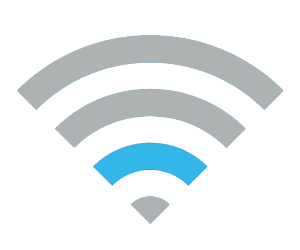How to protect your digital privacy?
×
[PR]上記の広告は3ヶ月以上新規記事投稿のないブログに表示されています。新しい記事を書く事で広告が消えます。
How to protect your digital privacy?
While the Internet can sometimes seem like a jungle of a million different threats, there are steps you can take to protect your privacy. Here are some easy, free and fast ways to keep yourself safe.
Protect your account
Over the past decade, data breaches and password breaches have hit companies like Equifax, Facebook, Home Depot, Marriott, Target, Yahoo, and more. If you have online accounts, chances are hackers have stolen data from at least one of them. Wondering which of your accounts have been compromised? Find Your Email Address on "Have I Been Stolen?" Link your email address to hundreds of data breaches.
Every user should use a password manager to generate and remember a different complex password for each account - the most important thing people can do today to protect their privacy and security. Many tools are good at managing your passwords, like LastPass and 1Password. Both can generate passwords, monitor accounts for security breaches, recommend changing weak passwords, and sync passwords between computers and phones. When you log into your account, the password manager saves and prompts you to change weak or duplicate passwords. You will receive new passwords for most accounts within a few weeks. Take a moment to change the default password for any device in your house - if your home router or security camera still uses "password" or "1234", change it now!
Everyone should also use 2-step verification for their online accounts whenever possible. Most banks and major social networks offer this option. As the name suggests, 2-step verification requires two steps: entering a password and entering a number that only you can access. For example, the first step is to log into Facebook with your username and password. In the second step, Facebook sends you a temporary code via text message or, better yet, through an app like Google Authenticator, which you then enter to log in.
Use a wifi jammer
The U.S. military used wifi signal jammers for the first time during the Gulf War. But they are now widely used by security companies. As you know, all the clients of these companies are rich people who take their privacy very seriously. When they have private meetings or business negotiations, their security advisors use signal jammers to block all phone signals within certain meters. This is the best solution to prevent digital criminals from hacking into participants' smartphones and recording conversations.

A wifi blockersr works like a noise signal generator. When activated, they emit many noise signals to interfere with mobile signals. In this way, the signal transmission between the cell phone and the cell tower is blocked. All mobile phones within range of the jammer will not be able to make calls. And today's signal jammers can block cell phone signals and disrupt wifi networks. Wifi jammers block the wifi signal by sending jamming signals to the router, so your phone, tablet or computer will lose internet access while in range of the wifi jammer device.
Related Articles
PR
コメント
プロフィール
HN:
No Name Ninja
性別:
非公開
